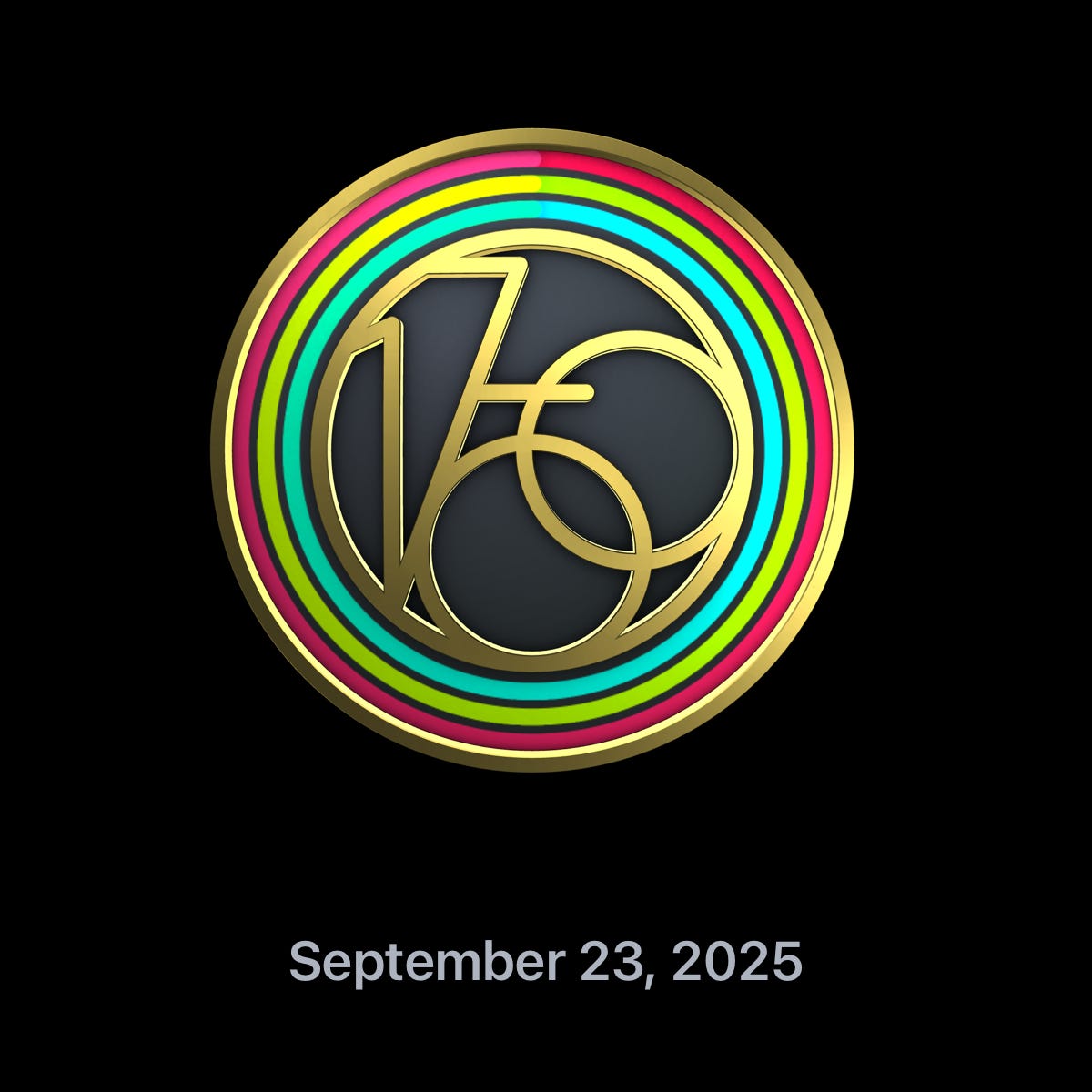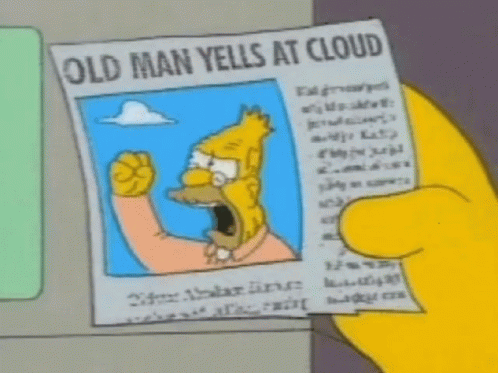Doing What I'm Told
Letting the Algorithm do its thing to me.
Apple sent me an award this week! It wasn’t for having spent a measurable part of my disposable income on their sleek but overpriced tools for decades on end. Nor was it staying safely ensconced in its “walled garden” of technology.
No, this was for closing all my rings for the 1,750th time on my Apple Watch. In other words, I’ve done my allotted amount of exercise, movement, and standing daily for nearly five years’ worth of days.
The award, I should say, was nothing more than some colored pixels.
Here, I’ll share it with you without requiring you to stand even once.
Yes, I’ve been sucked into Apple’s activity app for years now, and I let it control big portions of my life.
This is largely due to gamification, which uses all the psychological tools developed by video games over the past 40 years to draw you in and keep you engaged. Quests and goals, periodic awards, reminders, little attainable challenges, badges, and progress tracking are just a few of the mechanisms. Apple has lined all these up to keep me moving.
Instinctively, I resist being manipulated even as much of the technology we pay money for is designed to do so—to envelop us and to make giving it our attention a constant habit. Facebook and its endorphin hits are the most obvious perpetrator, but all the notifications and reminders on our phones and desktops are no better. We all dislike being treated like automotons that are going to react in specific ways to specific stimuli.
But then there’s the fitness app. I’ve given in to it wholly. I check my stand goals constantly, plan time to close the movement and exercise rings, rally to double or triple my movement goal when I’m riding or running.
In some ways, I feel like Apple should send me an award for being the world’s biggest sucker.
But the thing is, it’s made a big difference in my life. I’m unquestionably healthier than I was a decade ago. I eat better, I sleep better, my weight’s down. I feel better about myself. Because of this damned watch.
As I take on the old man’s shake of fist at clouds personally, I resist technology more and more every day. I intentionally look for chances to step away from the keyboard, the screen, and the phone. I take time to read paper books in quiet rooms with no screens. I cook everything from scratch. Rather than ride a sleek new carbon fiber bike, I built up a 40-year-old steel one to be just the way I like it.
I haven’t always been such a crank. I used to be an early adopter. I had a TRS-80 Model III when I was 14. (Look it up, younglings.) I built my first Pro Tools sound rig in the mid-nineties, stringing together enough loose hard drives using SCSI cables to master my first radio series. I once read all of Twain’s Roughing It on a Kyocera 6035 Palm phone, the Frankenstein’s monster of a predecessor to the iPhone.
Hell, I convinced Jeff Bezos to underwrite my first public radio series six months before Amazon went public. (True story.)
But somewhere along the trail, the wind shifted. I can’t remember the last time a new technology came around that made my life better.
Sure, there’s much more of it. And all this innovation is around making us “more productive.” But more productive doesn’t mean better.
Technologies that came out of Silicon Valley used to make our lives easier. I use maps all the time. I couldn’t/wouldn’t have written a novel without a word processor. I like having all the music in the world at my disposal. But those innovations are a generation or two old.
I Do Not Welcome Our Robot Overlords
Instead, it feels like technology is increasingly makes life more difficult in small ways and large. Everything from having to order food at a kiosk to tracking endless passwords to having AI and social media chip away at the sense of shared experience, the trust in news, and faith in public information.
Cory Doctorow may have coined the term “Enshittification” in 2022, but it is more relevant every day. From Merriam-Webster:
Enshittification is an informal word used to criticize the degradation in the quality and experience of online platforms over time, due to an increase in advertisements, costs, or features. It can also refer more generally to any state of deterioration, especially in politics or society. Similar forms include enshittifyand enshittified.
Do you remember when you could search for something in Google and the first page of results were not all someone trying to sell you something? Or when you entered a product name in Amazon and the first results were the actual product and not a sponsored substitute? If so, then you’ve experienced enshittification. And it’s the way with most technology these days. But it’s the water we swim in.
Short of going full Ted Kazynski, it’s nearly impossible to leave digital technology behind. But over the last decade, my default switch for automatic updates has slid from yes to no. I probably don’t want it or need it, and almost certainly won’t pay for it. I become more and more skeptical of the marketing machine that is trying to create need in me for something.
It’s an old-man shift, shaking my fist at the cloud. But it’s more than that—it’s part of the process of building my handbasket.
Taking Me for a Ride
Then there’s Apple Fitness. It’s a tool, now a decade old, that has made a measurable improvement in my life. The technology and the psychological manipulation that it expresses got me on my bike this morning and conned me into riding 20 miles. Yesterday, I ran 5k for the sake of one of those silly little badges made out of pixels.
What do you call it when you let yourself be manipulated every day for years straight. Apple will call it “encouragement,” but even now it feels sinister.
I’ve never had the discipline to exercise regularly before, but I’ve closed all my rings for nearly three years straight now and that streak is ongoing. I am both proud of myself and feel like a dupe. This is by no means a sales pitch. Find the discipline some other way if you can.
Do I think this is all going to bite me in the ass somewhere along the way? Will Apple sell of all its fitness data to the insurance companies? Who knows? If it has value, it’s going to be sold sooner or later.
I’ll tell you this—I’m not recording my alcohol consumption anywhere.
Song of the Week
Bob Welch jumped from Fleetwood Mac just before the album Fleetwood Mac came out, making him the Ronald Wayne of 70s Rock. For most, he’s something of a footnote these days, but he was dropping hits at the same time Rumours was doing its thing.
I kinda wish someone had recorded a video skateboarding and drinking Ocean Spray Cranberry to Hypnotized instead.



I applaud you for closing all your rings and winning an award! Look at you, all healthy and everything! I have to say it just makes me feel bad about myself. . .my sorry numbers just couldn't be right, could they?
As a newbie to the Apple Watch, I can’t tell if I’m proud or annoyed when it congratulates me for washing my hands well. Usually I just mumble, “you’re not my mother!” And almost believe it.